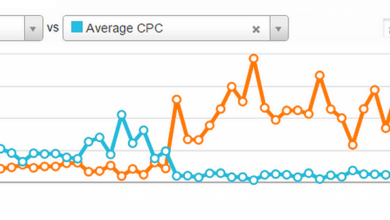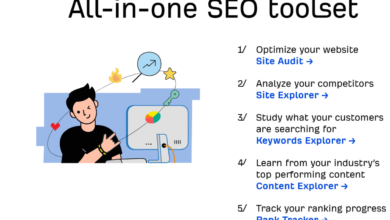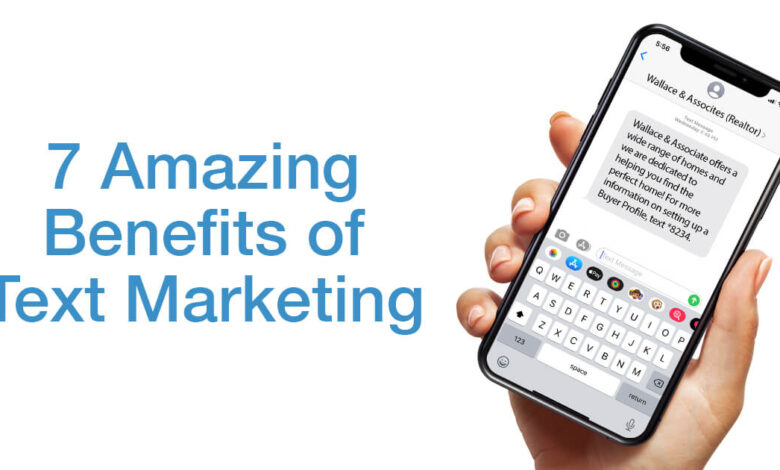
What is Text Message Marketing? Should You Try It?
What is text message marketing should you try it? This deep dive explores the world of SMS marketing, dissecting its core components, strategies, and potential. From concise definitions to practical implementation steps, we’ll uncover the intricacies of this powerful marketing tool. Discover whether it’s the right fit for your business.
Text message marketing is a dynamic and rapidly evolving channel. It’s more than just sending promotional messages; it’s about building relationships with your audience, delivering timely updates, and fostering engagement. Understanding the nuances of crafting compelling messages, optimizing campaigns, and complying with regulations is key to maximizing its effectiveness. This guide will equip you with the knowledge and strategies needed to leverage the power of SMS marketing for your business.
Introduction to Text Message Marketing
Text message marketing, also known as SMS marketing, is a powerful direct marketing channel that leverages the ubiquity of mobile phones to reach customers directly. It’s a highly effective way to engage with customers, deliver timely updates, and drive sales. Unlike other marketing channels, SMS marketing boasts a high open rate and immediate delivery, making it an ideal choice for time-sensitive promotions and crucial updates.SMS marketing differs significantly from other marketing channels in its immediacy and direct interaction.
While email marketing relies on inbox space and user preferences, SMS messages bypass these filters, often appearing in the user’s immediate view. Social media marketing, while powerful, requires building an audience and navigating platform algorithms. Traditional print advertising, though impactful, suffers from cost and reach limitations. SMS marketing provides a personalized, targeted approach with a high likelihood of engagement.
Types of Text Message Campaigns
Text message campaigns can be categorized into various types, each designed for specific purposes. Promotional campaigns use SMS to announce sales, discounts, or new product releases. Update campaigns keep subscribers informed about important company news, events, or changes in service. Transactional campaigns automate responses to customer actions, such as order confirmations, appointment reminders, or account updates. These distinct categories allow businesses to tailor their messaging for maximum impact.
Benefits of Using Text Message Marketing
SMS marketing offers numerous advantages for businesses. High open rates, often exceeding 90%, demonstrate the effectiveness of this channel. The immediacy of delivery ensures timely communication, perfect for urgent announcements or time-sensitive promotions. Personalization enables targeted messaging, fostering a stronger connection with customers. Furthermore, SMS marketing offers excellent tracking and reporting features, allowing businesses to monitor campaign performance and optimize future strategies.
Cost-effectiveness is another key benefit, making it a budget-friendly option for businesses of all sizes.
Text message marketing is a powerful tool, but should you use it? It’s all about direct communication and quick engagement. Think about how effective it can be for promotions and reminders, especially when compared to the more visual Instagram carousel marketing explained. Instagram carousel marketing explained is a great option for showcasing products and stories, but for simple, straightforward announcements, SMS might be the way to go.
Ultimately, the best choice depends on your specific needs and audience.
Examples of Successful Text Message Marketing Campaigns
Numerous businesses have successfully leveraged SMS marketing to boost sales and engagement. A retail store, for example, might send a text message announcing a flash sale on specific items, prompting immediate customer action. A restaurant could use SMS to remind customers of upcoming events, driving foot traffic and reservations. An online retailer might use SMS to confirm order details, offering real-time updates on delivery status.
These examples highlight the versatility of SMS marketing in various industries.
SMS Marketing Message Types
Understanding the different types of SMS marketing messages is crucial for crafting effective campaigns. This table demonstrates the various message types and provides examples.
| Message Type | Description | Example |
|---|---|---|
| Promotional | Announces sales, discounts, or new products. | “50% off all t-shirts today only! Use code SUMMER50.” |
| Update | Provides important information or company news. | “Store closing early today due to weather conditions.” |
| Transactional | Automates responses to customer actions. | “Your order #12345 has shipped. Tracking information: [tracking link].” |
Developing an Effective Strategy
Text message marketing, when done right, can be a powerful tool for boosting sales and customer engagement. However, a successful SMS campaign requires a well-defined strategy, tailored to your specific audience and goals. A poorly executed strategy can lead to frustration and a negative perception of your brand, so meticulous planning is crucial.Understanding your target audience is paramount to crafting effective SMS campaigns.
Knowing their demographics, interests, and communication preferences will allow you to tailor your messages for maximum impact. This knowledge also helps in segmenting your audience for targeted promotions, increasing the likelihood of conversions.
Understanding Your Target Audience
Understanding your target audience is fundamental to crafting effective SMS marketing campaigns. Analyze data on demographics, purchase history, and engagement patterns to identify key characteristics. This allows for more personalized and relevant messaging. For example, a clothing retailer could segment customers based on past purchases (e.g., specific styles or sizes) to send targeted offers on similar items.
Creating a Comprehensive Strategy
A comprehensive text message marketing strategy involves several key steps. First, define clear objectives for your campaign, such as increasing brand awareness, driving sales, or improving customer retention. Second, segment your audience based on shared characteristics to personalize messages. Third, establish a clear communication schedule and ensure the messaging aligns with brand identity. Fourth, rigorously test different message formats and content to optimize performance.
Finally, track key metrics to measure campaign effectiveness and identify areas for improvement.
Key Questions Before Launching a Campaign
Before launching an SMS marketing campaign, ask yourself crucial questions to ensure its success. What specific goals do you want to achieve? What is your budget for the campaign? What is the desired response rate? What is the appropriate frequency of messages?
Text message marketing is a fantastic way to connect with customers directly. But should you try it? It really depends on your goals. Think about how your marketing content can be both evergreen and engaging – like a well-crafted piece of evergreen content vs viral content that resonates with your audience. If you’re looking for a channel that can consistently deliver value, text messages are a great choice.
It’s all about building relationships and providing useful information.
What is the legal framework for SMS marketing in your region? Answering these questions thoroughly helps you tailor your campaign to your specific needs and legal requirements.
Permission-Based Marketing
Permission-based marketing is essential in SMS marketing. Acquiring explicit consent from customers to receive messages is crucial for building trust and avoiding negative customer perception. Clearly communicate the value proposition of your messages, outlining how they will benefit the customer. Ensure your opt-in process is clear and easily accessible. This demonstrates respect for your audience and avoids the risk of legal issues or negative publicity.
SMS Marketing Platforms Comparison
| Platform | Key Features | Pricing |
|---|---|---|
| Platform A | Easy-to-use interface, comprehensive analytics, robust segmentation tools | Variable, based on volume and features |
| Platform B | Focus on automation, sophisticated workflow management, excellent reporting | Variable, often tiered pricing |
| Platform C | Simple, affordable, suitable for small businesses, good for basic needs | Often a flat fee or per-message pricing |
This table compares common SMS marketing platforms, highlighting their key features and pricing models. Choose a platform that aligns with your budget, needs, and the complexity of your marketing strategy.
Best Practices for Effective Content
Crafting compelling text message content is vital for engagement. Keep messages concise and to the point, using clear and concise language. Use strong calls to action to guide recipients toward desired actions. Personalize messages whenever possible to improve relevance and engagement. Always include an easy opt-out mechanism to respect user preferences.
Consider A/B testing different message variations to identify what resonates best with your audience.
Crafting Engaging Messages
Crafting engaging text messages is crucial for effective SMS marketing. Short, clear, and personalized messages are key to capturing attention and driving conversions. This section dives deep into the art of crafting impactful text messages that resonate with your audience.Crafting text messages that grab attention and drive action requires careful consideration of various elements. Understanding the power of brevity, clarity, personalization, and visual elements is paramount in achieving successful SMS campaigns.
Brevity and Clarity
Effective SMS marketing hinges on concise and easily digestible messages. Readers have limited attention spans, so messages must be to the point. Avoid jargon and complex sentence structures. Get straight to the point, and clearly convey the desired action. The shorter the message, the higher the chance of a response.
Effective Subject Lines
Subject lines are the first impression of your SMS campaign. They must pique curiosity and encourage recipients to open the message. Here are some examples of effective subject lines:
- Limited-Time Offer: [Product Name]
- Exclusive Discount for [Customer Segment]
- Reminder: Your Appointment with [Company Name]
- Don’t Miss Out! [Event Name] This Weekend
Emojis and Visual Elements
Emojis and other visual elements can enhance the engagement of text messages. They can convey emotion and add personality to your brand. Use them strategically, however, as overuse can be distracting. Maintain a consistent visual style throughout your campaign.
Personalization
Personalization is key to successful SMS marketing. Tailoring messages to individual customers fosters a sense of connection and encourages engagement. Use customer data to personalize offers, greetings, and even product recommendations. For example, if a customer frequently purchases a specific product, you can offer a discount on it.
Text message marketing is a powerful tool, but should you try it? It’s all about reaching your audience directly, and if you’re looking to improve your campaign’s effectiveness, understanding responsive design marketing explained is key. A well-designed text message campaign, built with responsive design marketing explained principles in mind, ensures your messages display perfectly on any device.
Ultimately, whether or not you should use text message marketing depends on your specific goals and target audience.
Call-to-Action Messages
The call-to-action (CTA) is the core of your SMS message. It tells recipients what to do next. Use clear and concise CTAs. Examples include:
- Click here to learn more: [link]
- Reply with “YES” to claim your discount
- Visit our website today: [website address]
- Shop now: [link]
Urgency and Scarcity
Creating a sense of urgency and scarcity can significantly boost conversions. Limited-time offers and exclusive discounts can incentivize immediate action. Highlight the limited availability of a product or service to encourage prompt responses. For instance, use phrases like “Only 24 hours left!” or “Limited quantities available.”
Successful SMS Examples
A coffee shop sent a text message offering a free pastry with a purchase of a latte during a specific timeframe. The message included an image of the pastry and a clear call to action. This simple message drove significant sales and repeat business. Another example includes an e-commerce store sending a message with a discount code for a specific product.
The message contained a compelling description of the product and a clear call to action to purchase.
Promotional SMS Messages by Industry
| Industry | Message Example |
|---|---|
| Retail | “Get 20% off your next purchase! Use code SUMMER20 at checkout.” |
| Restaurants | “Enjoy 2-for-1 appetizers tonight! Dine-in only.” |
| Travel | “Last-minute deal! Book your flight to Paris with 30% off.” |
| Fitness | “Join our online workout challenge! Sign up by [date] and receive a free bonus session.” |
Implementation and Optimization: What Is Text Message Marketing Should You Try It
Putting your text message marketing strategy into action is exciting, but it’s crucial to approach it methodically. A well-structured implementation, coupled with diligent tracking and analysis, is key to achieving your desired results. This phase involves setting up your system, tracking key metrics, and fine-tuning your approach based on performance data.Effective implementation hinges on careful planning and execution.
By proactively monitoring campaign performance and adapting strategies based on data, you can optimize your ROI and maximize the effectiveness of your text message marketing efforts.
Setting Up a Text Message Marketing Campaign
Implementing your text message marketing campaign involves several crucial steps. First, ensure you have the necessary tools and platforms. This includes a robust SMS gateway, a customer relationship management (CRM) system (if applicable), and a dedicated team to manage the campaign. Next, define clear goals and objectives. What do you hope to achieve with your SMS marketing campaign?
Increased brand awareness? Higher conversion rates? Quantifiable goals are essential for tracking success. Finally, segment your audience. Tailoring messages to specific groups ensures higher engagement.
Tracking and Analyzing Campaign Performance
Campaign performance is crucial to optimization. Regular tracking and analysis allow for the identification of strengths and weaknesses, enabling adjustments for maximum impact. Monitoring key metrics provides insights into campaign effectiveness, helping you understand what resonates with your audience and what doesn’t.
Metrics to Monitor for SMS Marketing Campaigns
Monitoring several key metrics is essential for evaluating the success of your SMS marketing campaigns. These metrics provide insights into various aspects of your campaigns, including message open rates, click-through rates, response rates, and conversion rates.
- Open Rate: The percentage of recipients who open your messages. A high open rate suggests your messages are relevant and engaging.
- Click-Through Rate (CTR): The percentage of recipients who click on a link within your message. A high CTR indicates that your messages effectively drive traffic to desired landing pages.
- Response Rate: The percentage of recipients who respond to your message. A high response rate suggests your messages are prompting desired actions.
- Conversion Rate: The percentage of recipients who complete a desired action (e.g., making a purchase, signing up for a newsletter) after interacting with your message. This metric directly links SMS engagement to business outcomes.
- Bounce Rate: The percentage of messages that are undeliverable. A high bounce rate indicates potential issues with your recipient lists or your SMS platform.
- Delivery Rate: The percentage of messages successfully delivered to recipients. This metric provides a measure of the effectiveness of your SMS platform.
Strategies for Optimizing Campaign Performance
Optimizing SMS marketing campaigns involves a continuous process of refinement based on performance data. Testing different message formats, times of sending, and content variations are crucial for maximizing engagement.
- A/B Testing: Experimenting with different versions of your messages to see which performs better. This can involve varying subject lines, call-to-actions, or even the overall tone of your message.
- Segmentation: Dividing your audience into smaller, more targeted groups. This allows for more personalized messaging and improved engagement.
- Personalization: Tailoring messages to individual recipients based on their preferences, purchase history, or other relevant data. Personalized messages often yield higher conversion rates.
- Timing: Sending messages at optimal times based on recipient behavior and preferences. This often means sending messages when recipients are most likely to engage.
- Message Frequency: Determining the optimal frequency of sending messages to avoid overwhelming recipients.
Common Mistakes to Avoid in Text Message Marketing
Common pitfalls in SMS marketing can negatively impact your campaigns. Avoiding these errors is critical for a successful campaign.
- Ignoring the “opt-out” mechanism: Failing to provide a clear and simple way for recipients to unsubscribe from your messages can lead to complaints and penalties.
- Using overly promotional language: Spamming recipients with promotional messages can lead to unsubscribes and a negative perception of your brand.
- Poor message design: Messages that are difficult to read, poorly formatted, or contain errors can decrease engagement.
- Not segmenting your audience: Sending the same message to everyone can result in lower engagement rates.
Segmenting Your Audience for More Effective Messaging
Segmenting your audience is a critical step in optimizing SMS marketing campaigns. Tailoring your messages to specific groups leads to higher engagement.
- Demographics: Segmenting by age, gender, location, or other demographic factors can help tailor messaging to specific interests.
- Purchase History: Categorizing recipients based on their past purchases allows for targeted promotions and product recommendations.
- Engagement Level: Grouping recipients based on their engagement with previous messages can help refine your approach.
Methods of A/B Testing SMS Messages
A/B testing helps optimize your messages for better results. Several methods can be used to achieve effective A/B testing.
- Subject line variations: Testing different subject lines to see which elicits the highest open rates.
- Call-to-action variations: Testing different calls to action to see which leads to the highest conversion rates.
- Message content variations: Testing different versions of the message content to see which resonates best with your audience.
SMS Marketing Reports and Interpretation
Analyzing SMS marketing reports is crucial for understanding campaign performance. Here’s an example of how to interpret key data.
| Metric | Example Value | Interpretation |
|---|---|---|
| Open Rate | 65% | Good engagement; recipients are opening your messages. |
| Click-Through Rate | 15% | Moderate click-through rate; consider improving message content or calls to action. |
| Conversion Rate | 2% | Low conversion rate; identify potential areas for improvement in the sales funnel. |
| Bounce Rate | 3% | Acceptable bounce rate; investigate any invalid email addresses. |
Legal and Ethical Considerations
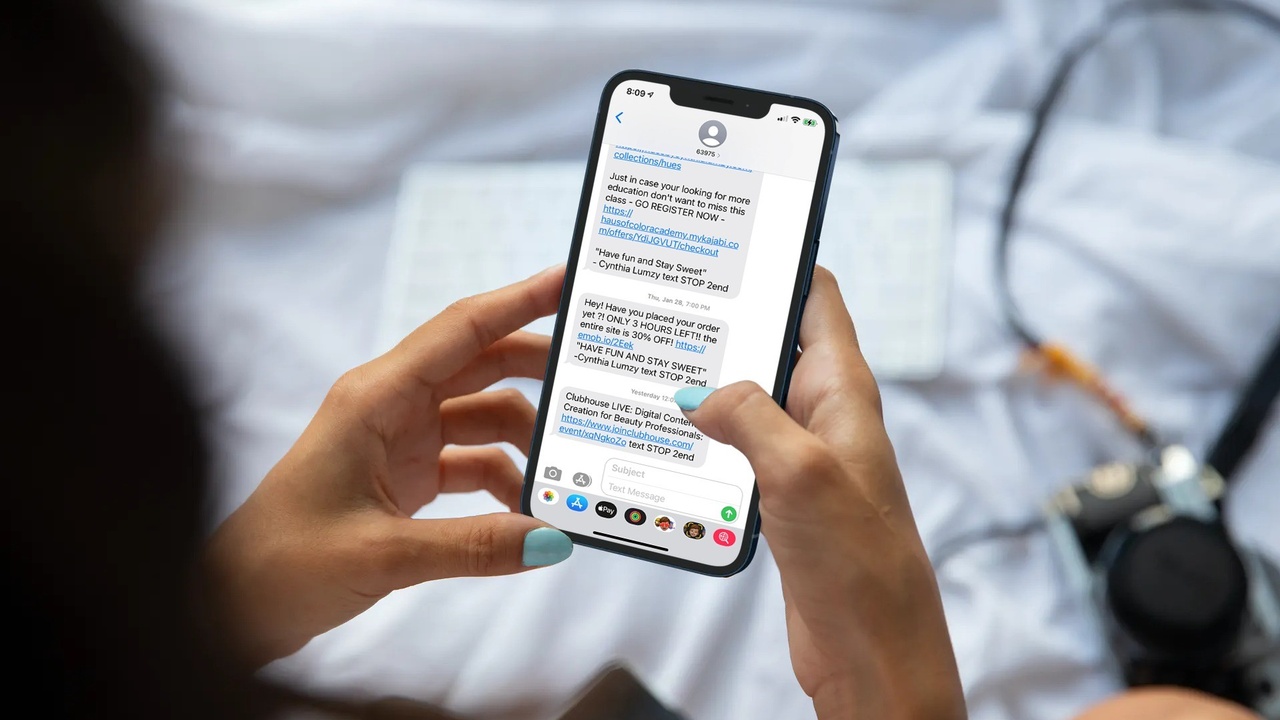
Text message marketing, while powerful, carries significant legal and ethical responsibilities. Companies must understand and adhere to regulations to avoid penalties and maintain a positive reputation with their customers. This section delves into the critical aspects of compliance, consent, and ethical practices to ensure a successful and responsible SMS marketing campaign.The landscape of text message marketing is constantly evolving, mirroring the ever-changing digital world.
Navigating this landscape requires a meticulous understanding of legal boundaries and ethical considerations. Failure to comply with regulations can result in hefty fines and damage to a company’s image, making responsible practices paramount.
Compliance with Relevant Regulations
Understanding and adhering to relevant regulations, such as the CAN-SPAM Act in the US, is crucial for a successful and legitimate SMS marketing strategy. These regulations govern how companies can communicate with consumers, setting clear guidelines for message content, consent, and opt-out mechanisms. Failure to comply can lead to legal repercussions and damage a company’s reputation.
Legal Requirements for Obtaining Consent
Obtaining explicit consent is a fundamental legal requirement for SMS marketing. Consumers must actively and knowingly agree to receive marketing messages via text. This consent must be documented and readily accessible for future reference. Implied consent is not sufficient. The consent process must be transparent, allowing users to understand what data is being collected and how it will be used.
Providing a clear opt-out mechanism is also vital.
Importance of Providing Unsubscribe Options
Offering a clear and easily accessible unsubscribe option is critical. Customers must have the ability to opt out of future marketing messages with minimal effort. This respect for user preferences is essential for maintaining a positive customer relationship. A poorly designed unsubscribe process can lead to frustration and potentially legal issues.
Ethical Considerations of Text Message Marketing
Beyond legal compliance, ethical considerations are paramount. Respecting user preferences and avoiding spam are crucial aspects of ethical SMS marketing. Companies should tailor messages to the user’s needs and avoid sending irrelevant or excessive messages. Honesty and transparency are essential for building trust with customers.
Examples of Companies Facing Legal Issues
Numerous companies have faced legal challenges due to poor SMS marketing practices. Examples include sending unsolicited messages without consent, failing to provide clear unsubscribe options, and employing deceptive practices. These instances highlight the importance of adhering to regulations and ethical standards.
Respecting User Preferences and Avoiding Spam
Respecting user preferences and avoiding spam are key components of ethical text message marketing. Companies should avoid sending excessive messages or messages that are irrelevant to the user’s interests. Consider the recipient’s time and avoid using pushy or aggressive language. Prioritizing the user experience above all else is crucial.
Key Regulations for SMS Marketing
| Region | Key Regulations |
|---|---|
| United States | CAN-SPAM Act, FTC guidelines |
| European Union | General Data Protection Regulation (GDPR) |
| Canada | Canada’s Anti-Spam Legislation (CASL) |
| United Kingdom | Privacy and Electronic Communications Regulations (PECR) |
Integration with Other Marketing Channels
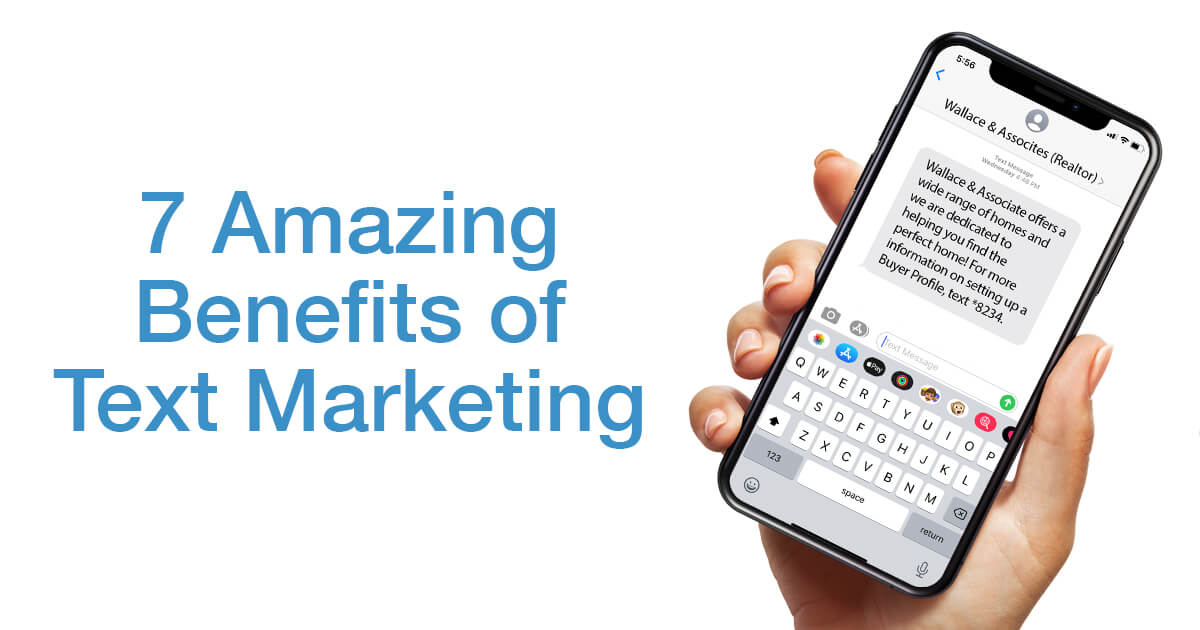
Text message marketing isn’t a standalone strategy; its true power lies in its ability to seamlessly integrate with other marketing channels. By combining SMS with email, social media, and other tactics, businesses can amplify their reach, personalize interactions, and ultimately drive higher conversion rates. This holistic approach leverages the strengths of each channel, creating a more robust and effective marketing ecosystem.Integrating SMS marketing allows for a more targeted and personalized approach.
By leveraging data and understanding customer behavior, businesses can send relevant messages at the right time, boosting engagement and ultimately driving sales. This integration ensures that customers receive consistent and relevant messaging across all platforms, fostering a stronger brand experience.
Benefits of Integrated Marketing
Effective integration of SMS with other channels provides several advantages. It allows for a more comprehensive customer journey, reinforcing messages across different touchpoints. This repetition and consistency helps customers remember your brand and offerings, leading to increased brand recall and ultimately, a higher likelihood of purchase. Furthermore, integrating SMS allows for more targeted and timely messaging. For instance, you could send a text reminder about an upcoming webinar or an email campaign, ensuring your message is seen by the recipient.
Examples of SMS Support for Other Campaigns, What is text message marketing should you try it
SMS marketing can support a variety of marketing campaigns. For instance, a business running a social media contest can use SMS to announce winners or send exclusive discounts to participants. A retail store could use SMS to notify customers about in-store promotions or send them exclusive discounts for a specific product line, simultaneously boosting engagement on social media. A travel agency could use SMS to remind customers about a booking confirmation or send them special offers tied to a social media contest.
This integrated approach ensures that the campaign’s message reaches the customer through various channels, reinforcing the core message and boosting engagement.
Using SMS for Lead Generation
SMS can be a powerful lead generation tool when used strategically. Businesses can use SMS to encourage sign-ups for webinars, newsletters, or contests, gathering valuable contact information. For example, a company hosting a webinar can send a text message with a unique link to register, directly directing interested individuals to the registration page. By using a unique code in the SMS, they can track the source of the registration and evaluate the effectiveness of their campaign.
Cross-Promotion Strategies
Cross-promotion using SMS and other channels is key to maximizing impact. For instance, a company running a discount campaign on its website could send an SMS to customers, reminding them about the offer and encouraging them to visit the website. Another example includes a company hosting a webinar. They can send an SMS with a link to the webinar, and simultaneously post about it on social media.
This reinforces the message and increases visibility.
SMS for Events and Webinars
SMS is highly effective for promoting events and webinars. By sending reminders and updates via text, you can ensure that recipients are informed and motivated to attend. For instance, a business hosting a webinar can send a series of text messages to remind participants about the event time and location, creating a sense of anticipation. Alternatively, a business holding an event can use SMS to send reminders and directions, enhancing attendee experience and participation.
Comparison data shows that SMS reminders often lead to higher attendance rates for events and webinars compared to email reminders.
SMS and Loyalty Programs
SMS can significantly enhance loyalty programs. Businesses can send personalized messages to reward loyal customers with exclusive discounts or early access to new products, strengthening their relationship with repeat customers. For instance, a restaurant could send exclusive discount codes to its loyalty program members via SMS, encouraging repeat visits. A clothing store could send personalized recommendations based on past purchases, fostering customer engagement.
Integrating SMS with Other Channels
| Channel | SMS Integration Strategies |
|---|---|
| Send SMS reminders for upcoming email campaigns or promotions. Use SMS to collect feedback on email campaigns. Offer exclusive discounts to email subscribers through SMS. | |
| Social Media | Use SMS to announce contest winners or promote exclusive content on social media. Send SMS reminders to attend webinars or events promoted on social media. Run cross-promotional campaigns between social media and SMS. |
| Website | Use SMS to direct users to specific website pages, such as product pages or registration forms. Offer exclusive discounts to website visitors through SMS. Encourage website visitors to sign up for SMS newsletters. |
Final Thoughts
In conclusion, text message marketing, when executed strategically, can be a highly effective tool for boosting engagement, driving conversions, and fostering lasting customer relationships. By understanding your audience, crafting compelling messages, and implementing a well-structured strategy, you can unlock the potential of this channel. We’ve covered everything from the basics to advanced techniques, highlighting the importance of compliance and ethical considerations.
Remember, a successful SMS marketing campaign hinges on understanding your audience and respecting their preferences.
